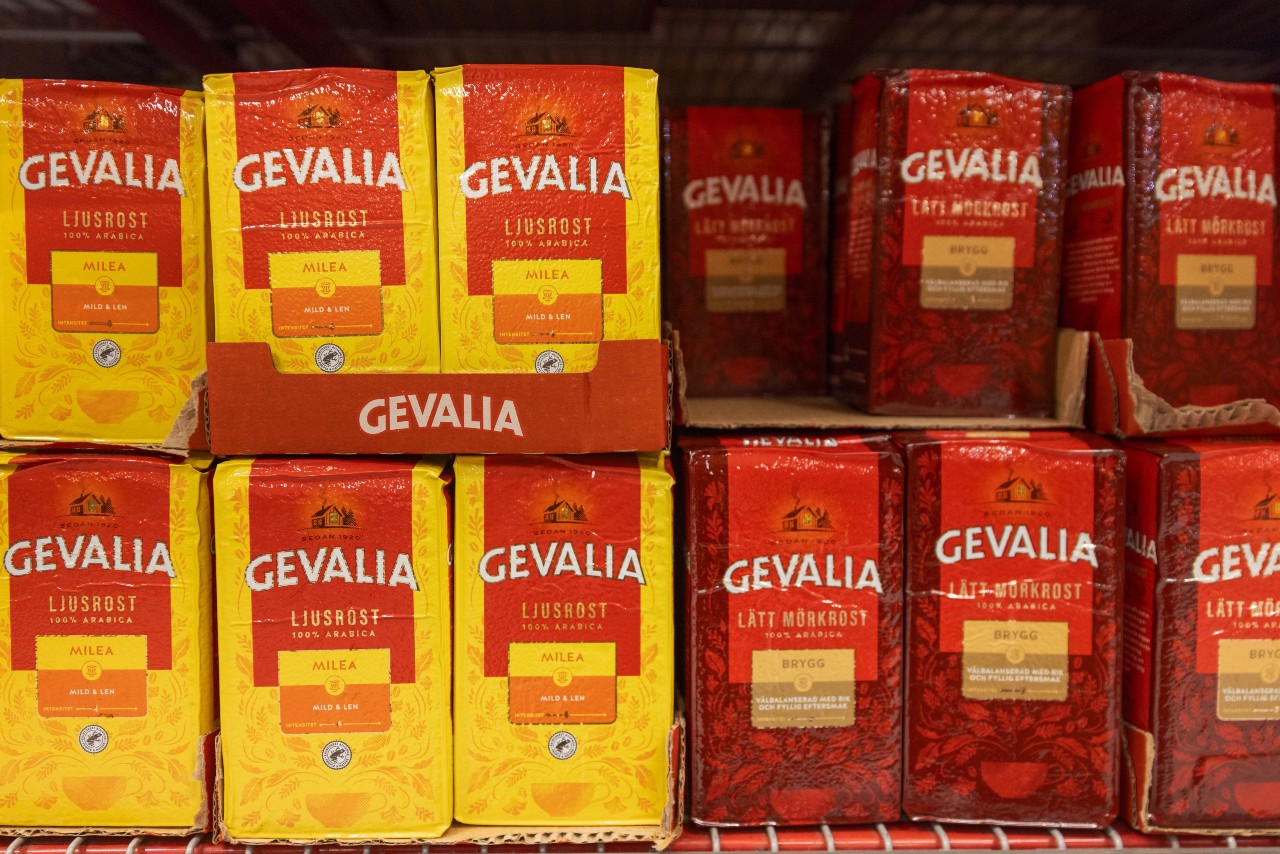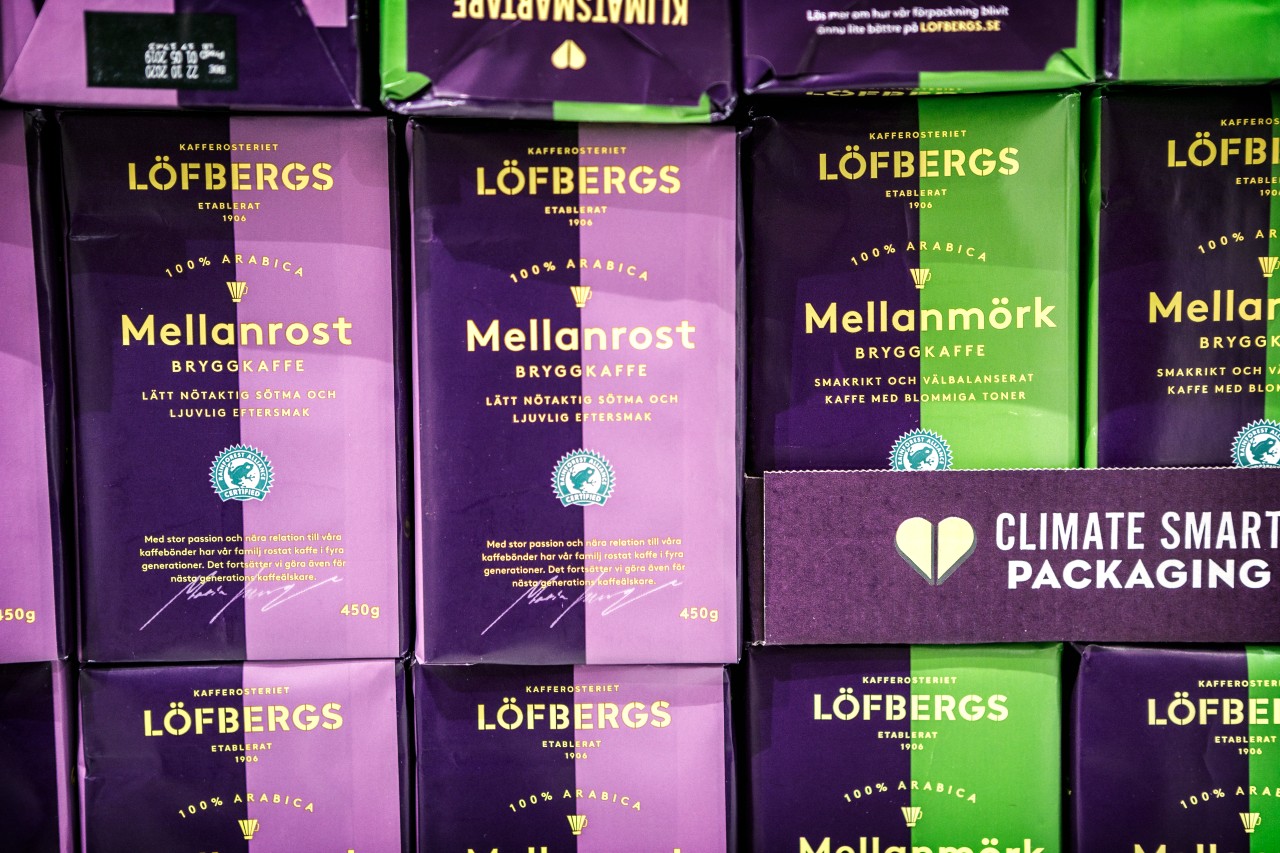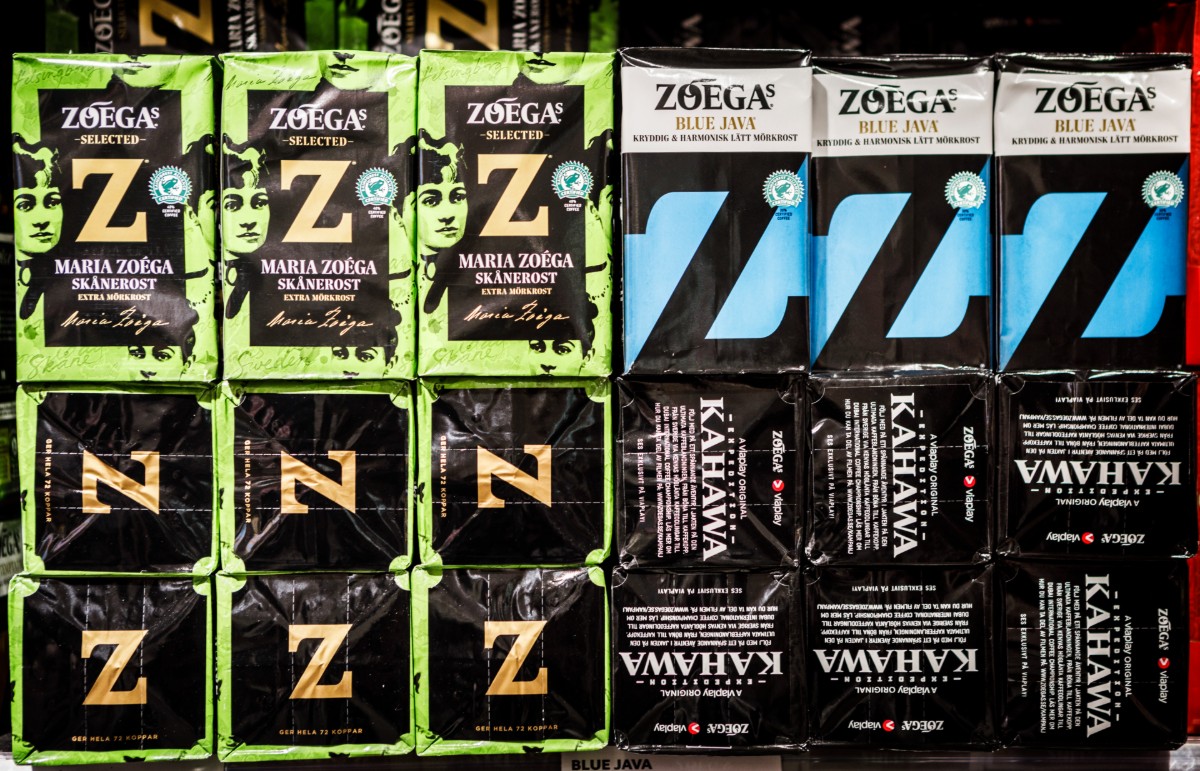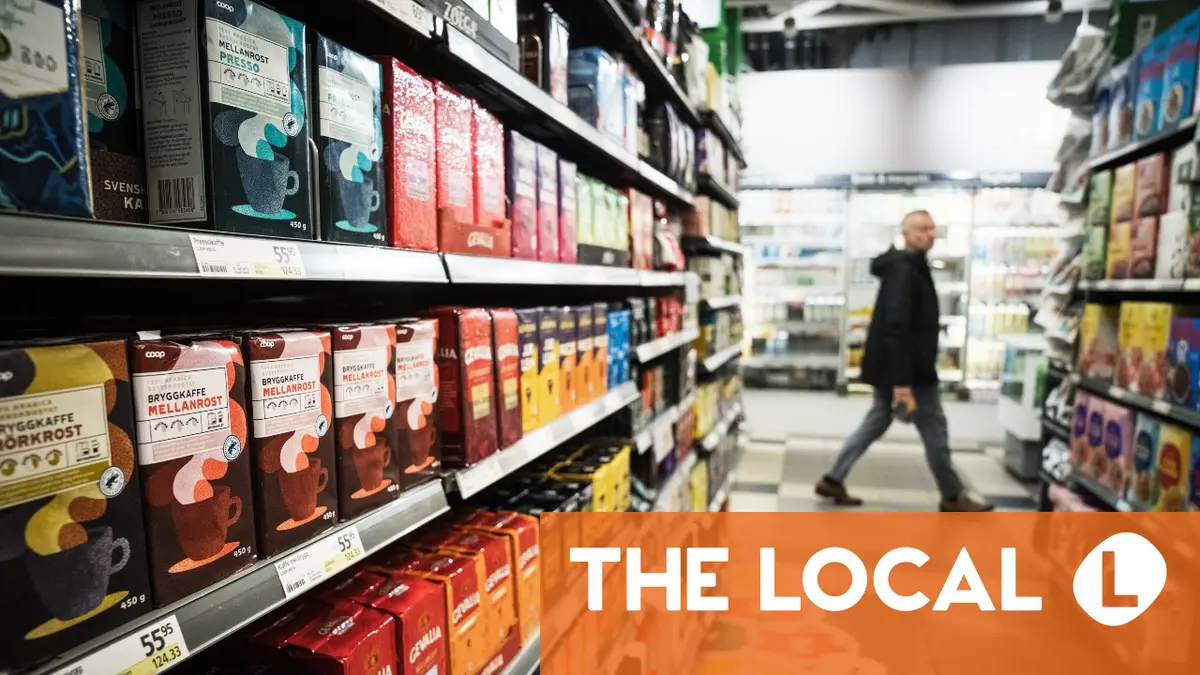Sweden is a coffee culture, with the coffee and cakes ‘fika’ ritual at the centre of social life. But newcomers to the country soon discover that regional coffee brands like Löfbergs, Lindvalls, Gevalia, and Zoégas are surprisingly strong.
Henrik Skander, a sommelier, tea and coffee expert, and senior lecturer at Örebro University, argues that the strong regional identities of Sweden’s main coffee brands essentially comes down to marketing.
“Skånerost, that’s actually branded with Skåne, so that’s very locally patriotic,” he tells The Local. “And where I live, close to Värmland, we have Löfbergs, which is associated with Karlstad, thanks to the sponsorship they did with the local hockey team Färjestad.”
He sees emphasising regional identities as a way of securing a foothold in a competitive market with five or six strong brands battling for national supremacy.
“You need to be strong locally in your region to have a secure area where you know you have a base income,” he says. “It is one important part of keeping the brand up.”‘
The brands do this despite the fact that two of the biggest ones ‒ Gevalia and Zoégas ‒ are foreign-owned, with the former owned by the US giant Kraft Foods and the latter by the Swiss food giant Nestlé.
Indeed, Zoégas pushes the regional angle more than any other brand, historically claiming that their coffee, or at least the Skånerost blend, is specially suited to the local water in southern Sweden.
“They have also sold the idea that you can only drink Skånerost in Skåne, because they have the right water to brew with,” Skander says.
This, he says, is a myth, as the granite which makes up much of Sweden means water is soft everywhere, apart perhaps from on the island of Gotland. Blind tastings carried out at his university using different soft and hard water showed that even coffee experts were unable to tell the difference.
The different Swedish brands do have different flavours, however.
Gevalia Mellanrost and Lövbergs Lila are the mildest of the bunch, with the others tending to have a heavier roast.
“If we start with those, I would say they are medium roasted, and they are like the general, standard Swedish coffee. If we then take Arvid Nordquist and Zoégas, they tend to have a higher or darker roast. So they are maybe more niched for a customer who likes more astringency and power in their coffee.”
Advertisement

Gevalia coffee for sale. Photo: Caisa Rasmussen/TT
Gevalia ‒ Gävle
Gevalia has its origins in Gävle, the port town north of Uppsala, where it was first registered as a brand in 1914 by the local businessman Ernst Engwall.
It wasn’t until 1953, however, that Engwall went big, building one of Europe’s largest coffee roasteries in the Baltic port. By 1966, Gevalia was Sweden’s leading national brand, with its instant coffee drunk across the country. In 1974 it was bought by the US giant General Foods, whose descendent company, Kraft Heinz, still owns it 50 years later via its Dutch subsidiary Douwe Egberts.
All the ground coffee it sells in Sweden is still roasted in Gävle.

Löfbergs coffee for sale. Photo: Caisa Rasmussen/TT
Löfbergs ‒ Karlstad
Löfbergs, the second-largest coffee brand in Sweden, was launched in Karlstad, Värmland, back in 1906 by three brothers, Josef, Anders and John Löfberg, although it wasn’t until 1911 that they started to roast their own coffee.
Löfbergs remains a Swedish-owned business and is chaired by Kathrine Löfberg, the great-grand daughter of Anders.
The company is now entering the UK market, one of the few countries where coffee consumption is growing in Europe, with the company trying to market its wares through an association with Swedish fika culture.
According to Skander, the brand is now playing down its association with the Karlstad hockey team Färjestad, as sales fluctuate too much with the success or failure of the team.
“They are not allowed to play in the purple colours anymore, although they are still sponsored by Löfbergs,” he says. “They didn’t want them to be so strongly connected, because it turned out that when they played badly, coffee sales went down.”
Advertisement
Lindvalls ‒ Uppsala
Eric Lindvall and his wife Josefina started a coffee, tea, cocoa and spice retailer, a so-called kolonialvaruhandel, or “colonial goods shop”, in the small town of Tierp, north of Uppsala, in 1891.
They soon moved to Uppsala, and in 1914 they built a large store next to Uppsala station in the then popular national romantic style. The store had its own coffee roastery, and when that became too small, the company built a larger roastery next door. It continued to roast coffee there until 2011, when it moved to a new modern plant on the outskirts of the city.
Lindvalls is the smallest major coffee brand in Sweden, with only 3 percent of the market, but it enjoys a strong loyalty in Uppsala, with about 30 percent of the city’s coffee market.
The company is still run by the family, with Ulf Lindvall, the great grandson of the founder, currently the chief executive.

Zoégas coffee for sale: Simon Rehnström/SvD/TT
Zoégas ‒ Helsingborg
Zoégas is Skåne’s contribution to Sweden’s regional coffee brands. It was launched back in 1886 in Helsingborg by Carlos and Maria Zoéga.
Carlos was a Swedish-Danish businessman with Italian roots, who moved to Brasil with his father when he was 21. He returned to Sweden in 1881, bringing with him a cargo of coffee beans and extensive knowledge of coffee.
He immediately set up a small roastery and shop in the port of Landskrona, moving to Helsingborg later. Carlos died shortly after the roastery and shop was established, leaving his widow to develop the business herself, which she eventually did with her second husband, Johan Svensson, who took her surname.
The company launched its famous Mollbergs Blandning brand in 1903, and its Skånerost brand (at first called Horns Blandning) in 1918. Zoégas was bought by Findus in 1986 and is now owned by the Swiss food giant Nestlé.
Arvid Nordquist ‒ Stockholm
Arvid Nordquist is another family-owned business, started in 1884 when the eponymous founder opened his first delicatessen in Nybrogatan, Stockholm. His grandson Anders Nordquist has run the business as chief executive since 1995.
The company is now based in Solna, Stockholm, and still produces both its own coffee and other luxury products. They started roasting their own coffee (rather than selling coffee roasted elsewhere) in 1962 after building a large-scale coffee roasting plant in Solna the previous year. They are currently building a new roastery housed in a wooden building in Jakobsberg.
Advertisement
Kahls ‒ Gothenburg
Kahls Kaffe was started in 1911 by the businessman Carl Birger Nilsson, although it wasn’t until 1915 that he opened his first shop, starting a rapid roll-out with ten shops in the city only a few years later.
While Kahls continues to blend its own coffees, it is primarily a tea and coffee retailer, with 22 shops around the country.
